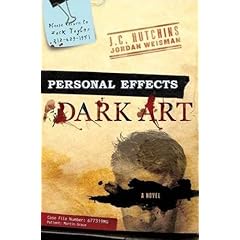
If you are not, then you should be. Otherwise you risk missing out on bearing witness to the rise of one of the most important writing talents of this century.
Hutchins is more than just a fine writer of science fiction thrillers and supernatural horror. JC Hutchins is a pioneer in both the world of social media and in interactive fiction as a whole.
Besides his claim to fame as one of a select group of writers who adopted podcast technology to share their stories for free and to develop audiences that publishing marketers would have completely missed, Hutchins has proved himself to be an innovator in both audience engagement and fiction delivery. From his Obsidian series of fanfic short stories, which drew submissions from such luminaries as Matt Wallace, Mur Lafferty, Tee Morris, and Christiana Ellis, to running flash quizzes on Twitter with the prize being a cameo appearance in his new collection of short stories, Hutchins continues to push the boundaries of fiction, and to enthrall his fanbase in the process.
Personal Effects: Dark Art is no exception.
Taken as a book on its own, PE:DA is a breath of fresh air in a market of tired blockbuster hacks weighed down the morass of meeting publishing deadlines. Hutchins' writing in this book is dark and edgy, almost conversational, reminiscent of Kesey, yet bristling with ominous undercurrents. Perhaps it was simply that I read the book in Hutch's voice, familiar as I am with his tone and delivery, but there was an injection of life in this book that is sadly lacking in so many of today's big-name authors.
The other thing about PE:DA is, of course, the personal effects themselves. The book comes with a pocket full of documents and, well, personal effects: credit cards, appointments slips, drivers license, as well as photos and drawings. It is possible to read this book on its own, but there is another layer to be explored in the story, by chasing up the clues that appear in text and in the personal effects. There are phone numbers to call and websites to visit, as well as clues that allow the reader to delve deeper into the mystery of Martin Grace than even Zach Taylor, the protagonist, gets.
Is it a gimmick? Perhaps. But if so, it's one of the hands-down coolest gimmicks to accompany a book that I've ever seen. The images and the information that the effects conjure forth are chilling, perhaps more so than the story. But the story itself is a powerful journey regardless. The three elements - the book, the personal effects props, and the world of clues that lie beyond the book - serve to enhance each other, creating an experience which is somewhat more substantial than the sum of the individual pieces.
Is it the future of storytelling? Well, that all depends on how well PE:DA does in the marketplace. It's the sort of thing I'd certainly like to see more of. At the end of the day, however, only book sales will determine whether or not this bold venture into multi-dimensional story-telling will sink or swim.
For sheer creative flair, PE:DA is a clear winner, and it's a damned enjoyable read all on its own. I'm going to give it 4.5 Stars, and recommend you get your hands on a copy.
If you haven't checked out Hutchins work already, then a good place to start is probably with the podcast exclusive prequel novella to PE:DA, called Personal Effects: Sword of Blood. It's not yet complete at the time of this post, but it's well worth a listen to get a feel for how Hutchins writes.
And then when you read PE:DA, you might hear it in Hutchins' voice in your head, too.







I absolutely agree. I just finished it over the weekend.
ReplyDeleteThe "personal effects" don't take away from the story, they deepen the experience. It was great fun translating the braille, going to the Web sites, calling the phone numbers, etc. But regardless, there was always a great story to come back to.
The pacing was swift, but not hurried. The voice was conversational, which made the story closer, more personal, thus--more effective.
Interesting plot twists, great characters and natural dialogue all combined to make a great story, a great reading experience.
There were only a few items, which, as a New Yorker, made me pause. But most of the world would never notice and it did nothing to dampen my enjoyment of the novel.
I highly recommend it.